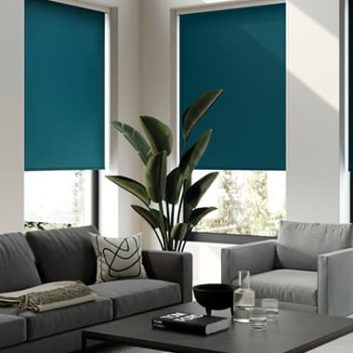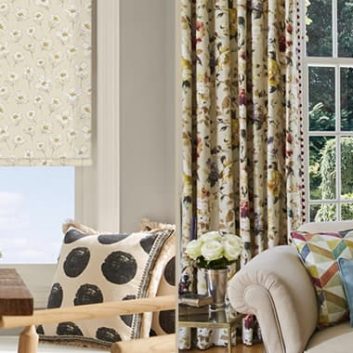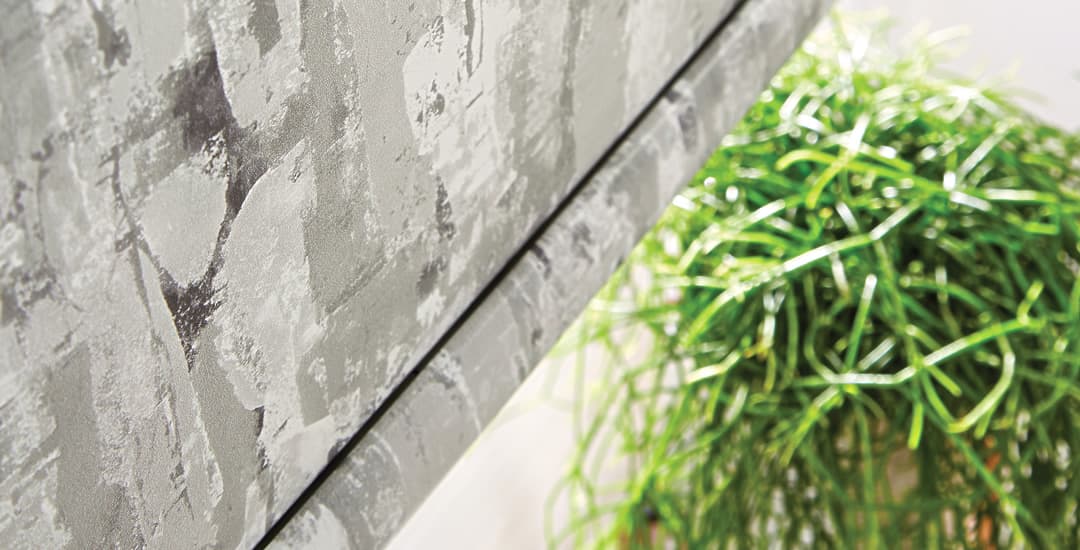
No, assuming that you buy truly waterproof blinds made of a good quality materials. Modern waterproof blinds are made of either PVC or vinyl soft fabrics in the case of fabric waterproof blinds like waterproof rollers and vertical blinds, or waterproof materials like rigid PVC or enamel coated aluminium, in the case of blinds made of hard material.
That said, bathroom blinds can go mouldy or grow mildew if they’re made of polyester or another non-waterproof material, and if a lot of organic residue builds up on your blinds, even a waterproof blind’s surface might start to support unwanted life too…
“Organic residue build-up? What’s that? Urgh!”
I hear you! This blog post will cover everything you didn’t know you needed to know about waterproof blinds and mould/mildew growth (or generally, lack thereof) plus what I mean by “organic residues,” and the exception that proves the rule.
Do waterproof blinds go mouldy and eventually grow mildew if they get wet?
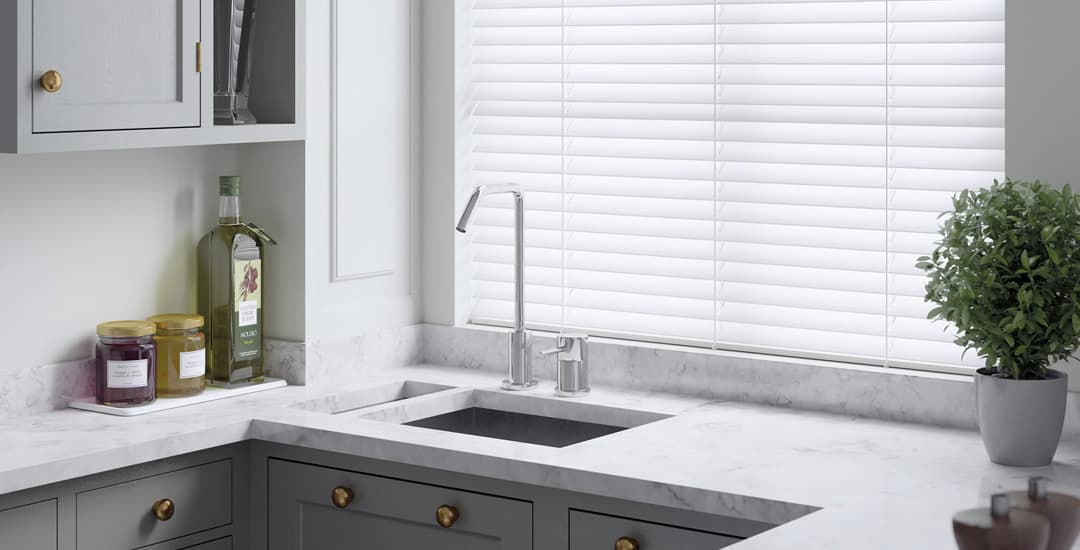
No, not if you buy a blind from a reputable retailer that is advertised/sold as a waterproof blind (waterproof mind, not water resistant, for lovers of weasel word exposure), because they’re not made from organic materials and so, cannot support the growth of other organic lifeforms.
Additionally, the manufacturers and retailers of good quality waterproof blinds (like us) also use a special surface treatment on the exposed parts of our waterproof blinds to really over-egg the pudding in the under-moulding of the blind stakes.
This means that blinds made of vinyl or PVC (like waterproof roller blinds and waterproof vertical blinds) won’t grow mould or mildew, and nor will faux wood blinds (made of rigid PVC) or say, the slats of Venetian blinds, which are made of enamel-coated aluminium; albeit the lift cords of these latter two types of blinds are not themselves waterproof.
Do bathroom blinds go mouldy if they’re not waterproof?
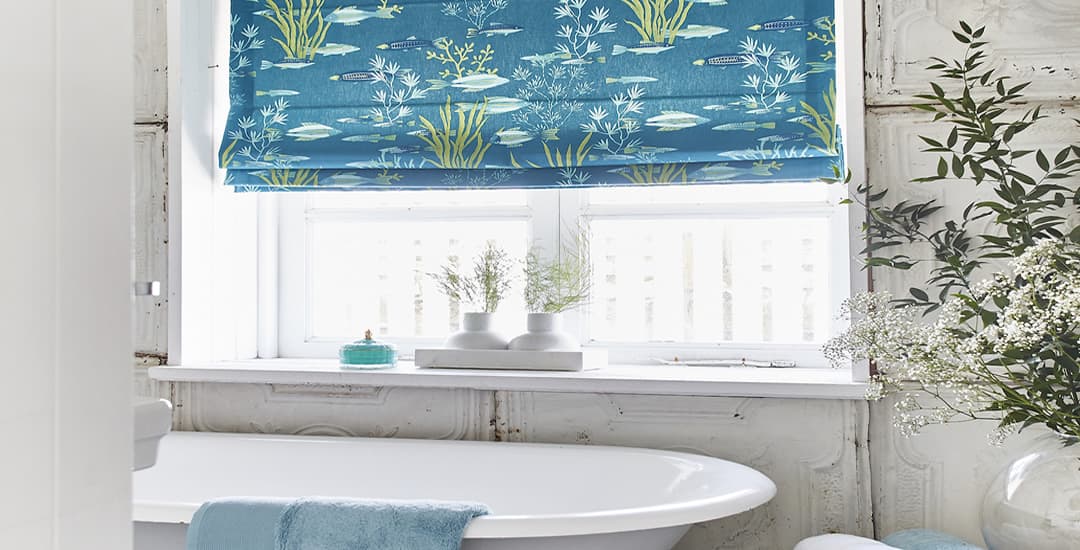
Yes, this is something that you can’t get away from! A non-waterproof fabric blind like a polyester roller blind or vertical blind, or a linen/silk Roman blind will grow mould and mildew sooner or later if exposed to steam/humidity or made wet and left damp for any length of time.
How long it takes for mould or mildew to develop in such situations depends on a wide range of factors, like how wet the blind gets, how often, and for how long; if it manages to dry out in between exposures, and even how warm or bright the room is.
But you could reasonably expect to see mould or mildew (and potentially, even smell it) on non-waterproof blinds used in damp or humid environments within just a few months. Non-waterproof blinds can’t be washed/cleaned, or otherwise treated to reverse such damage if it happens either.
Do waterproof blinds go mouldy in any situation?
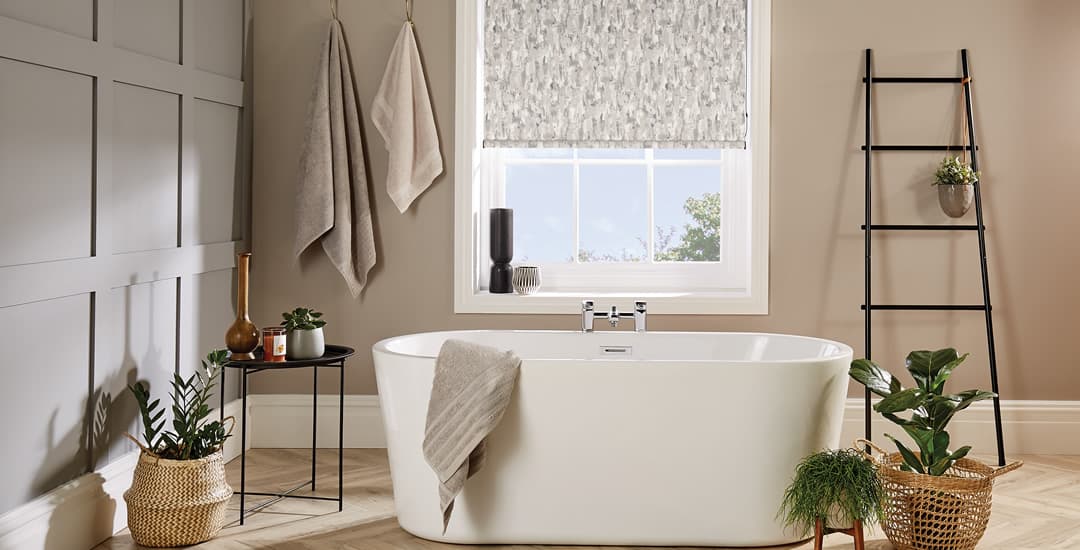
And now the part you’ve been waiting for, the answer to the “urgh what the actual heck is organic residue, why might this be on my blinds, and how does this cause them to grow mould or mildew?”
So, organic residue is, for the purposes of my simplifying things for this description, dirt.
More specifically, dirt that may contain anything that is or was once alive. Dead skin cells within household dirt, soil from under your nails, all sorts… Generalised “dirt,” such as we all have in our homes and that cannot be prevented entirely, however much of a clean freak you are.
If your blinds get soooo grubby and sticky that they build up an actual layer of compound dirt on them and some of this dirt contains some form of organic matter, this can be sufficient to support life… And by “life,” I mean, less the “colonising other planets” type, and more the “spore-based nasties” type.
Ever seen a seedling sprouting somewhere that it has absolutely no right to be, like in your actual (indoor) doormat, or in the channel of a window frame? The same sort of effect applies.
Ultimately, a waterproof blind itself isn’t able to host mould or mildew, but certain types of dirt, if allowed to accumulate on the blind over the long term, might. However, this would take many months or even years to happen, even if you absolutely never cleaned your blind, and may not even happen then.
You can also avoid any possibility of this happening entirely by simply giving your blind a wipe off (if it’s damp) or dusting it over when dry now and then when you clean the rest of the room.
Also, if your blinds do get absolutely dripping wet on a regular basis, allow them to dry out fully now and then, which may mean opening a blind like a roller blind to its full extent to air it, or wiping them off with a dry cloth.

